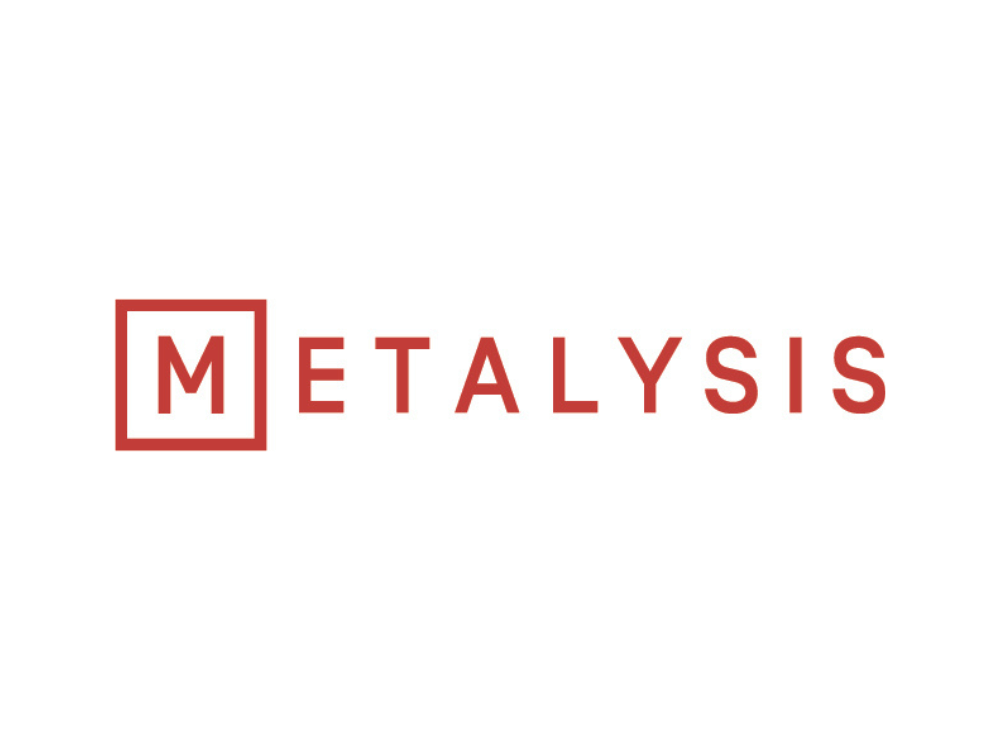- Acquisition reflects Metalysis’ expansion across refractory alloys and refractory high entropy alloys
- Spheroidising in-house reduces timelines for delivery of spheroidised powders, environmental footprint and reduces supply-chain exposure
Metalysis, the end-to-end manufacturer of solid-state metal and alloy powders and global leader in materials science, has acquired a 40 kW Tekna spheroidiser. This size of spheroidiser is designed for the production of spherical powders for niche markets with high added value, and discovery of new alloys at development scale. This acquisition highlights Metalysis’ scaling-up production of its refractory alloys – which includes Tantalum, High Entropy Alloys – and plans to serve the high temperature niobium market with materials such as Niobium C103 and FS85. This also underscores Metalysis’ ongoing commitment to enhancing efficiency, sustainability and innovation in powder metallurgy.
Using the patented FFC Cambridge electrolysis process, Metalysis reduces metal oxides in the solid-state, a method which contrasts to traditional melting processes, and is able to deliver non-spherical powders exhibiting unique market-leading attributes required by its global customer base – with the firm being focused on capacitor grade tantalum, aluminium scandium alloys, lightweight and refractory high entropy alloys. With these materials, Metalysis serves the capacitor, semiconductor, clean energy, aerospace, extreme environment, hypersonics and space sectors.
Versatile and Efficient Production
The spheroidiser can meet the most demanding powder metallurgy applications, including Additive Manufacturing (AM), Metal Injection Moulding (MIM), Spark Plasma Sintering (SPS), and Hot Isostatic Pressing (HIP). It enhances Metalysis’ in-house capabilities, improving attributes such as powder flowability, reducing internal porosity, and delivering higher packing density.
Typically, the Metalysis FFC Cambridge process outputs powders with an angular shape, thus the spheroidiser is able to produce spherical particles for powder metallurgy applications.
Commitment to Sustainability
A key feature of the Metalysis FFC Cambridge technology, is the ability to tailor particle size for a given additive manufacturing technique, whilst generating minimal under or oversize particles. This characteristic is maintained post spheroidisation, resulting in negligible waste powder being created compared to conventional atomisation processes, and consequently energy is not consumed in the generation of scrap powder.
By bringing spheroidisation in-house, Metalysis enhances its vertically integrated production model, reducing lead times, mitigating global supply chain risks, and significantly tightening its sustainable footprint. This move eliminates the need to transport materials around the world, aligning with Metalysis’ dedication to environmental responsibility.
Nitesh Shah, CEO of Metalysis, remarked, “The acquisition of a 40 kW spheroidiser marks a major step forward in Metalysis’ capability to produce advanced powders in-house and serve our niche but high value markets – particularly in refractory alloys and lightweight refractory high entropy alloys. By controlling our spheroidisation processes, we’re not only reducing lead times and mitigating global supply chain risks, but also reinforcing our sustainable footprint. This is a pivotal moment for Metalysis as we strengthen our position in the critical materials supply chain – now able to provide spheroidised powders in-house.”

